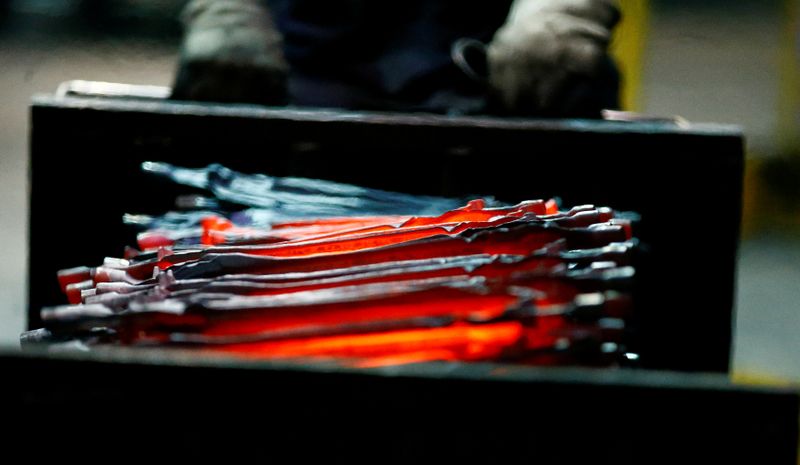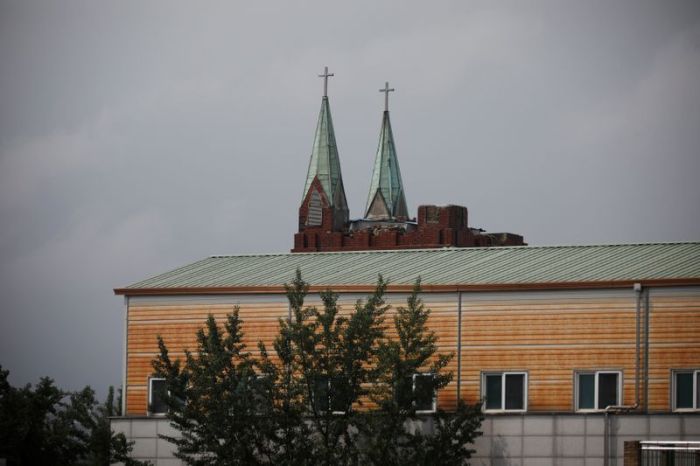LONDON (Reuters) – The euro zone’s recovery from its deepest economic downturn on record hit the brakes in August, particularly in services, as pent-up demand unleashed by the easing of coronavirus lockdowns dwindled, a survey showed on Friday.
To contain the spread of the virus, which has infected over 22.5 million people globally, governments imposed strict lockdowns – forcing businesses to close and citizens to stay home, bringing economic activity to a near halt.
After many of those restrictions were relaxed, activity in the euro zone expanded in July at the fastest pace since mid-2018. But as infection rates have risen again in parts of the region, some earlier curbs have been reinstated.
So in data likely to concern policymakers and diminish hopes for a V-shaped recovery, IHS Markit’s flash Composite Purchasing Managers’ Index sank to 51.6 from July’s final reading of 54.9, below all forecasts in a Reuters poll that predicted no change.
“The fall back in the euro zone composite PMI in August suggests the initial V-shaped rebound following the lifting of the lockdowns is already fizzling out,” said Jessica Hinds at Capital Economics.
The flow of incoming new business for firms slowed and once again some of August’s activity was derived by businesses completing backlogs of work.
Germany and France, the bloc’s two biggest economies, also lost economic momentum this month, driven by the services slowdown.
Apart from those economies, activity in the bloc decreased marginally in August, IHS Markit said.
In Britain, outside the currency union and who entered and exited lockdown later than its euro zone neighbours, the recovery from the shock of the COVID-19 pandemic quickened again in August.
British retail sales surged past pre-pandemic levels in July, the first full month shops selling non-essential goods were open since the country went into lockdown in March, although economists fear the retail recovery may not last.
However, snowballing job cuts sent an ominous signal for the months ahead. [GB/PMIS]
Stock markets made small advances on Friday following a huge rally that has wiped out coronavirus losses. [MKTS/GLOB]
SERVICES STALL
Growth in the euro zone’s dominant service sector stalled, with that PMI plummeting to 50.1 from 54.7, below all forecasts in the Reuters poll which predicted a small dip to 54.5.
With demand waning, the bloc’s services firms cut headcount for a sixth month and more sharply than in July.
Economists noted the employment components of the PMIs suggested trouble in the job market.
“Those numbers indicate that the worst is yet to be seen in the euro area labour market and clearly points to a gradual recovery path,” noted Tuuli Koivu at Nordea Markets.
Factory activity – which didn’t suffer quite as sharp a decline as the service industry during the height of the pandemic – expanded for a second month.
An index measuring output, which feeds into the composite PMI, rose to 55.7 from 55.3.
However, suggesting factory purchasing managers don’t expect a big pick up in activity, they again bought fewer raw materials than in the previous month.
European Union leaders agreed last month a 750 billion euro pandemic recovery fund but the relief won’t kick in until next year. For its part, the European Central Bank is expected to keep monetary policy ultra-loose for a long time.
A full bounceback from the euro zone’s deepest recession on record will take two years or more, according to a recent Reuters poll of economists. [ECILT/EU]
(Reporting by Jonathan Cable; Editing by Hugh Lawson and Toby Chopra)

























